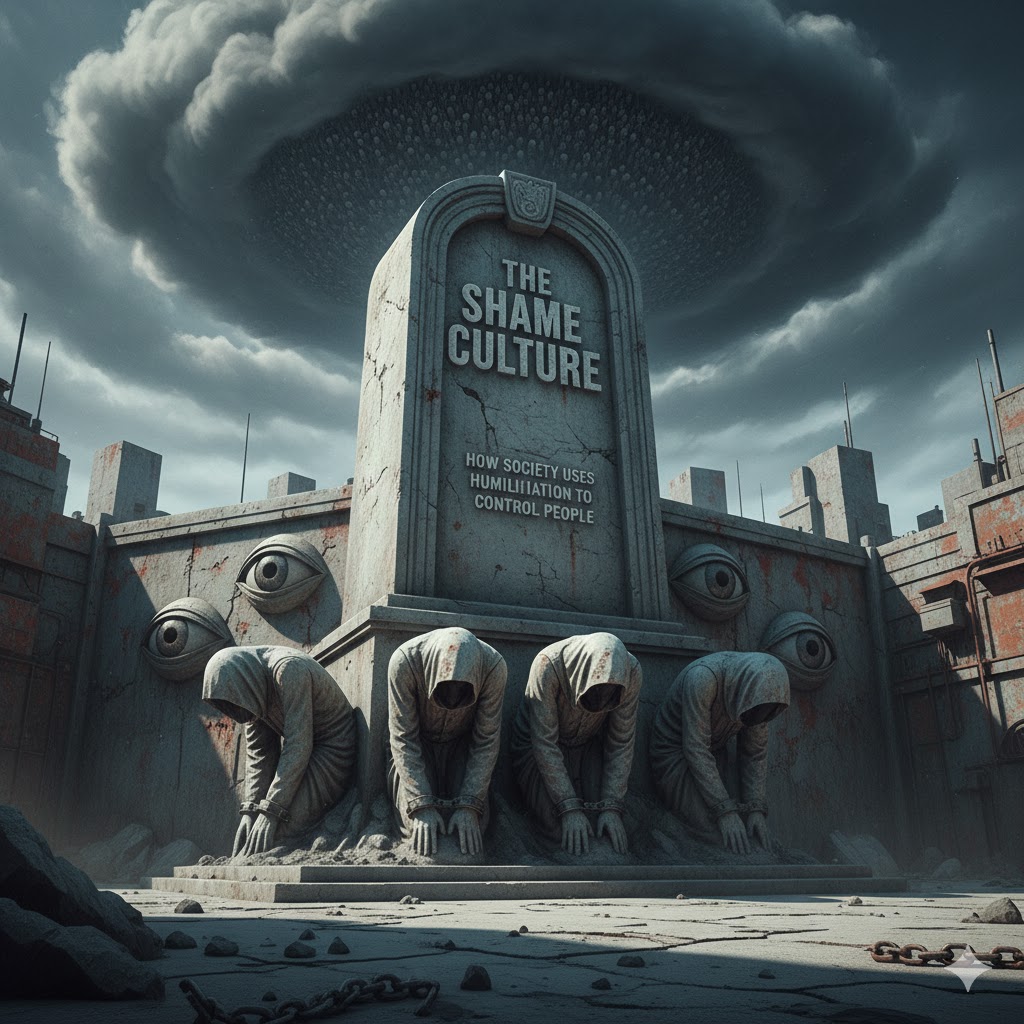Shame has quietly become one of the strongest tools society uses to influence and control people. It operates in the background of daily life, shaping how we speak, how we dress, and even how we think. Unlike guilt, which focuses on what we have done, shame attacks who we are. It convinces people that one mistake defines their entire identity. It teaches them that imperfection is unacceptable and that being seen in a vulnerable moment is a kind of failure. This silent pressure creates a culture
Shame is one of humanity's oldest and most powerful social emotions. Unlike guilt, which focuses on our actions, shame strikes at the core of our identity, making us feel fundamentally flawed, unworthy, or defective as human beings. Throughout history, societies have wielded shame as a tool of social control, using humiliation and public disgrace to enforce conformity, punish deviance, and maintain established power structures. Today, despite our claims of progress and enlightenment, shame remains deeply embedded in our social fabric, operating through both traditional institutions and new digital platforms that amplify its reach and intensity beyond anything our ancestors could have imagined.
This exploration examines how shame functions as a mechanism of social control, why it proves so effective at regulating human behavior, and what consequences arise when societies rely too heavily on humiliation to maintain order. We will journey through the psychology of shame, its historical manifestations, its contemporary …



